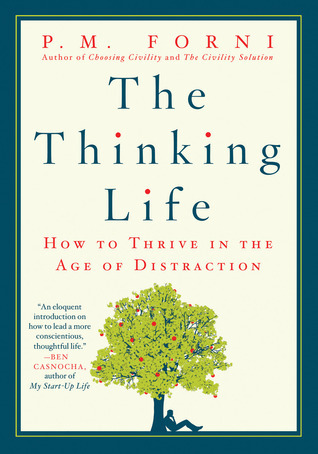What do you think?
Rate this book


192 pages, ebook
Published September 13, 2011
Indeed it may be said with some confidence that the average man never really thinks from end to end of his life. There are moments when his cogitations are relatively more respectable than usual, but even at their climaxes they never reach anything properly describable as the level of serious thought. The mental activity of such people is only a mouthing of clichés. What they mistake for thought is simply a repetition of what they have heard. My guess is that well over eighty per cent. of the human race goes through life without having a single original thought. That is to say, they never think anything that has not been thought before and by thousands.Professor Forni goes on to show very convincingly that reflection and introspection are vital for those capable of them. They help us to exercise self control, embrace the positive, be proactive, make wise decisions, manage adversity, and be creative and insightful.
You can't do anything about the length of your life, but you can do something about its width and depth.I found the design of the book quite unpleasant. The shaded sections at the end of each chapter contain questions and exercises that make it seem like a textbook, the quotations are presented, inexplicably, in difficult to read all-caps, as are the headings, and the spindly font used only exacerbates the problem.